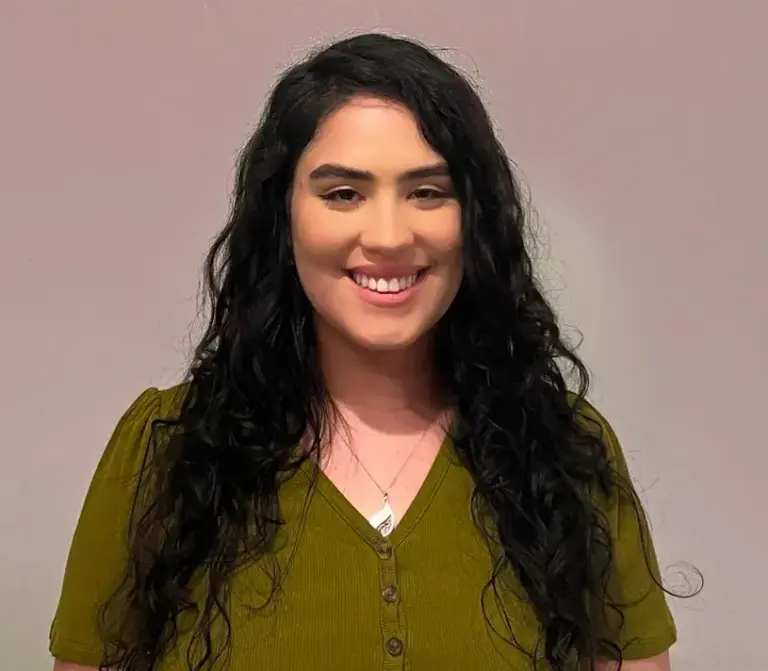Therapy Online in NJ for Anxiety, OCD & Depression
Looking for therapy online in New Jersey? At Mind by Design, we provide expert, compassionate online treatment for anxiety, OCD, depression and more — all from the comfort of your home. Our therapists are trained in evidence-based techniques like
- Ketamine Therapy
- Expressive Art Therapy
- Exposure & Response Prevention (ERP)

Start Therapy Online & Feel Better, Faster
Anxiety looks different for everyone — from chronic worry to panic attacks. Our online treatment for anxiety uses a combination of cognitive-behavioral therapy (CBT), ERP Therapy, and virtual reality therapy to address not just the symptoms, but the cycle behind them.
OCD can feel relentless, but it doesn’t have to run the show. Through specialized treatments, including Exposure and Response Prevention (ERP) and Virtual Reality Therapy, we’ll work with you to break down the barriers OCD creates.
Adjusting to life after childbirth can be challenging. We provide compassionate support for new parents experiencing postpartum mental health concerns.
Depression can feel isolating — but help doesn’t have to be. Receiving therapy online offers structured and supportive treatment plans you can follow from your own space.
With our therapy online for phobias and fears, you will receive support and guidance to help you move past fear and reclaim your life. Our providers use traditional talk therapy, like CBT as well as Exposure Therapy to treat phobias effectively.
Online therapy for people who’ve tried everything else
What Life Looks Like After Online Therapy
You’ll feel calmer, clearer, and back in control—not just surviving the day but actually living it.
You’ll stop overthinking every little thing and start trusting yourself again.
You’ll learn how to handle the hard stuff without shutting down, spiraling, or running away.
Our Online Therapists are Here for You
Rebecca Sidoti, LCSW
Founder & Psychotherapist
Rebecca Sidoti is an empowering and empathetic psychotherapist specialized in providing online treatment for Anxiety, OCD, Phobias and Panic Disorder. Her approach extends beyond traditional talk therapy, offering additional supports like Ketamine Assisted Therapy, Virtual Reality Therapy & Expressive Art Therapies.
Meet the Therapists in Training
Ashlee Jacobs
Clinical Social Work Intern
Ashlee is a social work intern who brings empathy and a practical mindset to her therapeutic work. Drawing from her experience in client support, she approaches each individual with care and a strong belief in the power of community resources and connection. Ashlee creates a space where clients feel heard and supported, meeting each clients evolving needs with compassion & thoughtfulness.
Jailene Irizarry, BSW
Clinical Social Work Intern
Jailene provides therapy for Spanish-speaking individuals and English-speaking individuals in New Jersey. Jailene brings a conscientious and supportive approach to therapy as a clinical mental health intern. She provides individual counseling to teens and adults experiencing depression, trauma and stress.
Paulina Del Pino
Clinical Social Work Intern
Paulina is a bilingual social work intern with over a decade of experience in community mental health. Whether you’re navigating a life transition, managing stress, or processing trauma, Paulina is creates a warm and empowering environment to promote your personal growth.
Begin Online Therapy Today
Starting online therapy with Mind By Design is simple and convenient. We provide secure, HIPAA-compliant video sessions to individuals across New Jersey, allowing you to access high-quality therapy online, all from the comfort of your home.
Here’s how it works:
Schedule A Consultation
Book an initial consultation through our online portal to discuss your needs and therapy goals and answer any questions you have.
Online Therapy Sessions Begin
Attend regular, secure therapy sessions from your phone, tablet, or computer—no need to commute or rearrange your busy schedule.
Personalized Treatment Plan
We’ll design a customized therapy plan tailored to your needs, whether it includes VR therapy, ketamine therapy, or other specialized approaches.
Ongoing Support
Benefit from ongoing guidance, therapeutic support, and access to mental health resources in-between sessions.
Client Experiences with
Our Online Therapy Services
My therapist has been a crucial help in my management of my OCD.
Since working with her I've eliminated nearly all of my avoidance behaviors, while also decreasing my daily distress significantly, as well as improving my relationship dynamics. She's the first therapist I've worked with who always leaves me feeling hopeful and in good hands after every session.

I just feel like a brand new person!
I look forward to the day now and i know that my therapist is still there- in my corner! If you need help with the challenges that life gives you, please don’t hesitate to make an appointment!

No matter the reason why you or a loved one might seek therapy, I give my very highest recommendation.
My therapists wisdom, compassion and insights make her one of the best, most gifted therapists I've experienced.

I know I'm growing emotionally & I feel stronger & better with each session.
Simply the best, a stroke of luck to have stumbled upon this practice & Rebecca. I appreciate the empathy, dedication, directness & flexibility more than I can put into words.

I’ve felt a marked difference in my overall emotional state since I started therapy.
I love working with my therapist. She really takes the time to listen to me and help me piece together my needs and coping strategies.

My therapist is fantastic.
I am receiving wisdom and insight in a nurturing and judgment free setting.

My baseline anxiety has significantly decreased since I started therapy.
I handle stressful situations with more grace than I previously did. I feel that I am able to be a better mother to my children and more confidence worker in my career.

Therapy has helped me to feel more confidence in myself
... and my ability to regulate my own emotions. I have been better able to reflect on my own thoughts and feelings and use my own self-awareness to better handle stressful situations in the future.

I have felt more confident in my abilities as a parent and a professional.
I was hoping to gain more self-confidence and build up my self-esteem, but I have also strengthened my abilities in other areas along the way

Questions About Therapy Online?
Where are you located? I need a therapist near me
We are fully online, which means that your therapy sessions will be help via video call on our HIPAA compliant Platform. Anyone in New Jersey can access our therapy services
How do I get started as a new client?
New Clients can reach out to us directly via call, text or email here:
Does my insurance cover my visits?
We provide”Courtesy Billing” for clients who are using the Out-of-network insurance benefits.
Our Insurance Page might answer your questions about your insurance information, cost and OON coverage.
What are out-of-network benefits?
Visits our FAQ About Insurance to learn more about OON coverage for mental health services. We can also check your benefits for you. When using OON benefits, patients typically pay the full cost of the treatment upfront and then file a claim with their insurance company for reimbursement.
Is Online Therapy As Effective As In-Person Therapy?
Online therapy is essentially face-to-face counseling, just conducted remotely. Studies show that tele-therapy is as effective as traditional counseling. Professional organizations and state governments recognize its benefits and have set regulations for it. However, like any therapy, its success in achieving your goals isn’t guaranteed. It’s important to discuss with your therapist whether tele-therapy is working for you.
How Should I Prepare for My First Session?
Showing up is all that you need to do! But if you really want to get the most out of session, it could help to take some time to think about what you want from therapy. It helps to write down your goals, questions you have or things that you feel are important to share.
Do you offer traditional talk therapy?
of course! though we have some unconventional therapy approaches, we are rooted in evidenced based practices. Talk therapy is a major player in the therapy room! See What we Treat and Integrative Services for more information
Is Virtual Counseling Suitable for Everyone?
Online therapy might not be as effective for individuals with chronic suicidal thoughts, severe trauma, significant mental health history, or those recently in intensive care. Such cases often benefit more from traditional, in-person counseling. We’ll help you decide if our online services are right for you during your intake and evaluation.
Can I Change Therapists If I'm Not Happy?
Yes, you can switch therapists to another provider within the practice, or we can provide you a referral if preferred. We want to ensure that your time and effort are well spent, and that you are getting the relief you need, that’s why we work collaboratively with each other in the practice, as well as outside therapists who we know and trust.
How Do I Know If Therapy Is Helping?
You should feel like you’re making progress. Signs it’s working include:
- Feeling comfortable talking to your therapist
- Your therapist respects boundaries
- You’re moving towards your goals
- You feel listened to
You’re doing better in life - Your self-esteem is getting better
What is your cancellation policy?
We ask that clients provide at least 24 hours notice in the event that they need to cancel to avoid the 50% cancellation fee. we understand that life happens and do our best to be flexible & reschedule.
What Geographic Areas Are Served?
Currently, we serve clients in New Jersey and are expanding to other states as telehealth laws evolve. While telehealth offers the convenience of attending sessions from anywhere, state laws require clients to be in-state during their session.
Is Online Therapy Easy to Use for Non-Tech-Savvy People?
Yes, it’s pretty simple to access sessions. You’ll need basic internet skills, such as opening and visiting the patient link sent to you via email. It’s similar to video chatting like Facetime or Zoom. We can also walk you through it on the phone the first time to ensure a strong connection
What Questions Should I Ask My New Therapist?
Feel free to ask anything. Some good questions are:
- How often will we meet?
- What do you specialize in?
- What experience do you have with my issue?
- What outcomes can I expect?
- How will I know I’m progressing?
- How long do you usually work with clients?
- How will we set my treatment goals?
What is the difference between associate therapists & fully licensed therapists?
Our Qualifications:
Our founder, Rebecca Sidoti, is a highly qualified, state-licensed therapist and supervisor with extensive training in anxiety related disorders and innovative treatment such as Ketamine Therapy. Mind by Design Counseling adheres to standards set by the our governing counseling boards.
To see each providers credentials, training and licenses, visit our “Meet the Therapists” Page to learn more.
- LAC/LSW are therapists who may practice clinical work under the supervision of a fully licensed therapist.
- LPC/LCSW are therapists who have completed the necessary clinical hours post-graduation under supervision and can practice clinical work independently.









